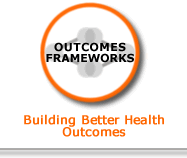 |
C . Evidence for educational and youth work interventions (Prevention model) |
Summary There is highly processed and review-level evidence that school-based interventions which focus on psychosocial and developmental skills can be effective in reducing drug use. Rationale Although some study quality limitations were noted there is highly processed evidence from a Cochrane review (2005) that showed consistent results from skills-based interventions (programmes developing drug knowledge, decision-making skills, peer resistance and self-esteem) as the most effective of school-based interventions in reducing drug use (compared to usual curricula). [1] In their review of the evidence for a Lancet Addiction Series, Strang et al (2012) suggest that economic analyses of psychosocial developmental interventions (personality targeted coping skills programmes) among school-aged adolescents are cost-effective even with the small to medium effects due to substantial lifetime benefits of even slightly lower rates of early drug or alcohol use. [2] Scottish policy and practice note NHS Health Scotland’s (2014) Health Inequalities Policy Review for the Scottish Ministerial Task Force on Health Inequalities[3] highlights that education and learning are a key area for intervention to address health inequalities. Good-quality education provides core life skills to increase employability, mental health and wellbeing, resilience and social inclusion. Reversing the Trend [4]is a joint project involving six voluntary youth work organisations, Lloyds TSB Foundation for Scotland’s Partnership Drugs Initiative, and Evaluation Support Scotland about the role the youth sector plays in preventing problem substance use by young people. The purpose is to offer an insight into what outcomes can be achieved by providing preventative approaches from universal help through to more specialist support for young people – and how to evaluate them. The resource focuses on substance use but recognises youth work also contributes to other cross-cutting issues facing young people.
|
References:
|

